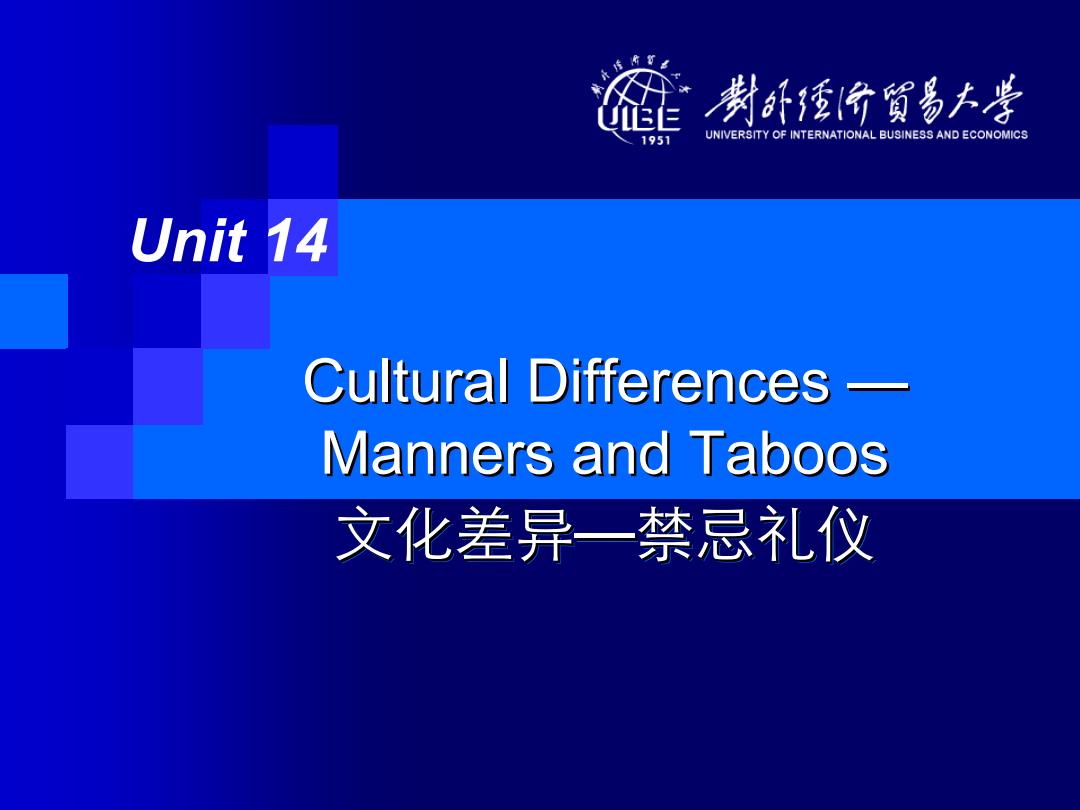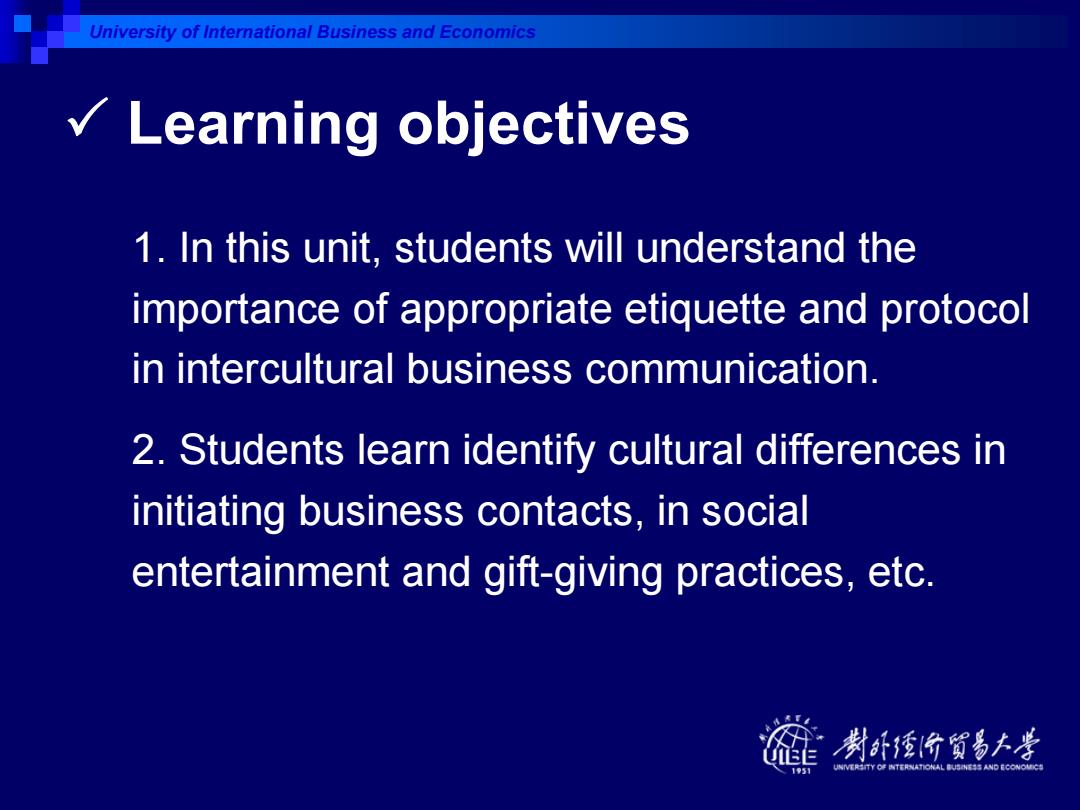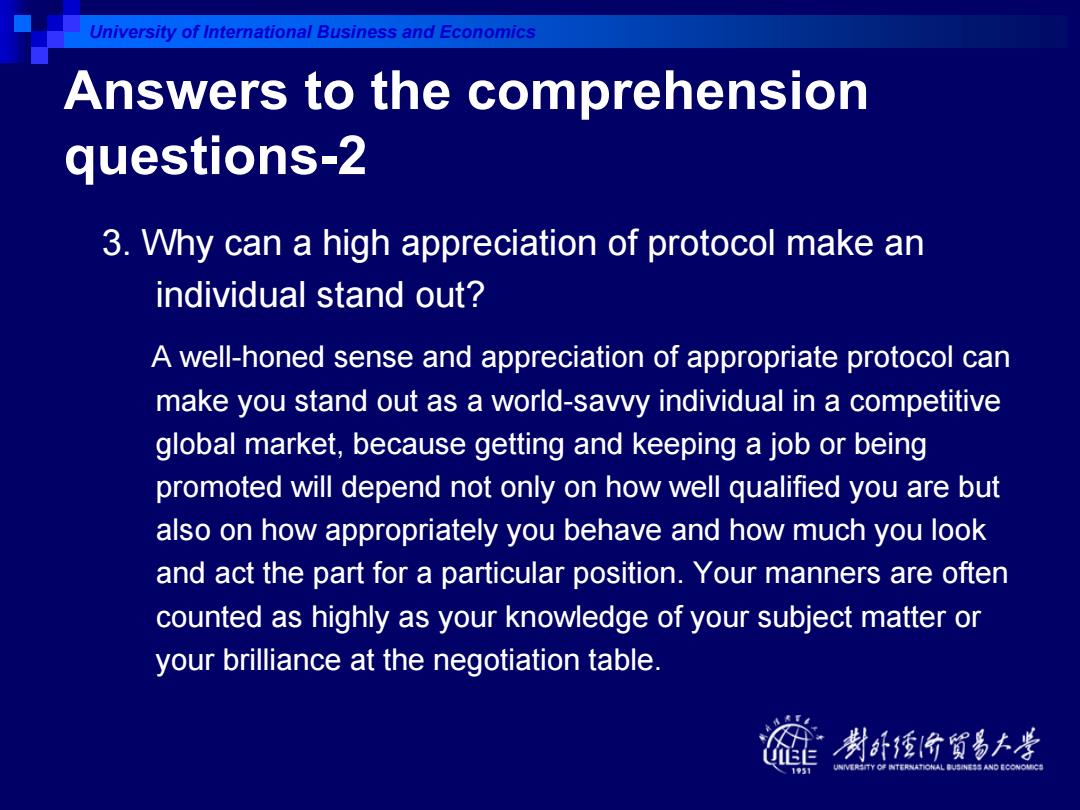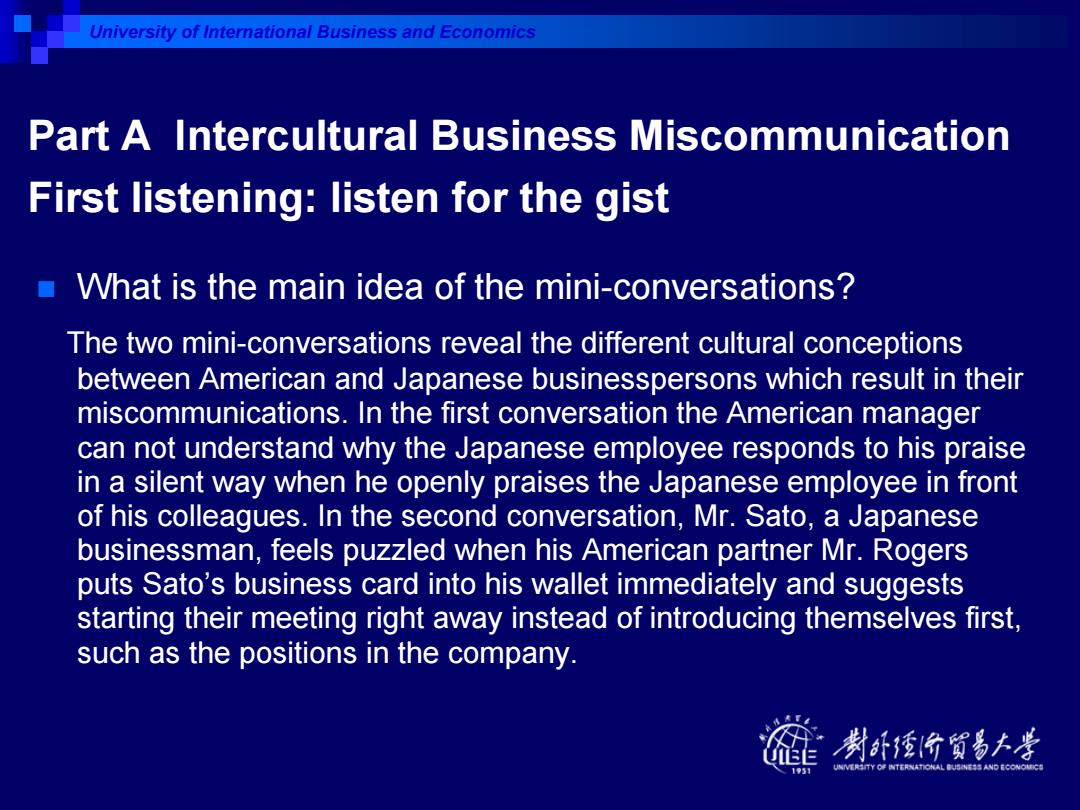
制舒价買易大訾 1951 UNIVERSITY OF INTERNATIONAL BUSINESS AND ECONOMICS Unit 14 Cultural Differences Manners and Taboos 文化差异一禁忌礼仪
Cultural Differences — Manners and Taboos 文化差异 —禁忌礼仪 Cultural Differences Cultural Differences — Manners and Taboos Manners and Taboos 文化差异 —禁忌礼仪 Unit 14

University of International Business and Economics √Learning objectives 1.In this unit,students will understand the importance of appropriate etiquette and protocol in intercultural business communication. 2.Students learn identify cultural differences in initiating business contacts,in social entertainment and gift-giving practices,etc. 制仟香价贸易大孝 UNIVERSITY OF INTERNATIONAL BUSINESS AND ECONOMCS
University of International Business and Economics 3 Learning objectives 1. In this unit, students will understand the importance of appropriate etiquette and protocol in intercultural business communication. 2. Students learn identify cultural differences in initiating business contacts, in social entertainment and gift-giving practices, etc

University of International Business and Economics Answers to the comprehension questions-1 1.How has the author linked executive manners to business success? Executive Manners link together can create the strong,effective executive presence that propels an individual upward in his or her career. 2.Why does the author say "good manners are cost-effective"? Good manners are cost-effective because they not only increase the quality of life in the workplace,contribute to optimum employee moral, and embellish the company image,but they also play a major role in generating profit. 尉卧价黄易大岁 15
University of International Business and Economics Answers to the comprehension questions-1 1. How has the author linked executive manners to business success? Executive Manners link together can create the strong, effective executive presence that propels an individual upward in his or her career. 2. Why does the author say “good manners are cost-effective”? Good manners are cost-effective because they not only increase the quality of life in the workplace, contribute to optimum employee moral, and embellish the company image, but they also play a major role in generating profit

University of International Business and Economics Answers to the comprehension questions-2 3.Why can a high appreciation of protocol make an individual stand out? A well-honed sense and appreciation of appropriate protocol can make you stand out as a world-savvy individual in a competitive global market,because getting and keeping a job or being promoted will depend not only on how well qualified you are but also on how appropriately you behave and how much you look and act the part for a particular position.Your manners are often counted as highly as your knowledge of your subject matter or your brilliance at the negotiation table. 制卧价贫易大学 15 UNIVTRSIT¥¥T月。4L地hE等SAND FCONOMC
University of International Business and Economics Answers to the comprehension questions-2 3. Why can a high appreciation of protocol make an individual stand out? A well-honed sense and appreciation of appropriate protocol can make you stand out as a world-savvy individual in a competitive global market, because getting and keeping a job or being promoted will depend not only on how well qualified you are but also on how appropriately you behave and how much you look and act the part for a particular position. Your manners are often counted as highly as your knowledge of your subject matter or your brilliance at the negotiation table

University of International Business and Economics Part A Intercultural Business Miscommunication First listening:listen for the gist What is the main idea of the mini-conversations? The two mini-conversations reveal the different cultural conceptions between American and Japanese businesspersons which result in their miscommunications.In the first conversation the American manager can not understand why the Japanese employee responds to his praise in a silent way when he openly praises the Japanese employee in front of his colleagues.In the second conversation,Mr.Sato,a Japanese businessman,feels puzzled when his American partner Mr.Rogers puts Sato's business card into his wallet immediately and suggests starting their meeting right away instead of introducing themselves first, such as the positions in the company. 制卧爱价贫易大孝 15 UNIVTRSIT¥¥T月。4L地hE等SAND FCONOMC
University of International Business and Economics Part A Intercultural Business Miscommunication First listening: listen for the gist What is the main idea of the mini-conversations? The two mini-conversations reveal the different cultural conceptions between American and Japanese businesspersons which result in their miscommunications. In the first conversation the American manager can not understand why the Japanese employee responds to his praise in a silent way when he openly praises the Japanese employee in front of his colleagues. In the second conversation, Mr. Sato, a Japanese businessman, feels puzzled when his American partner Mr. Rogers puts Sato’s business card into his wallet immediately and suggests starting their meeting right away instead of introducing themselves first, such as the positions in the company